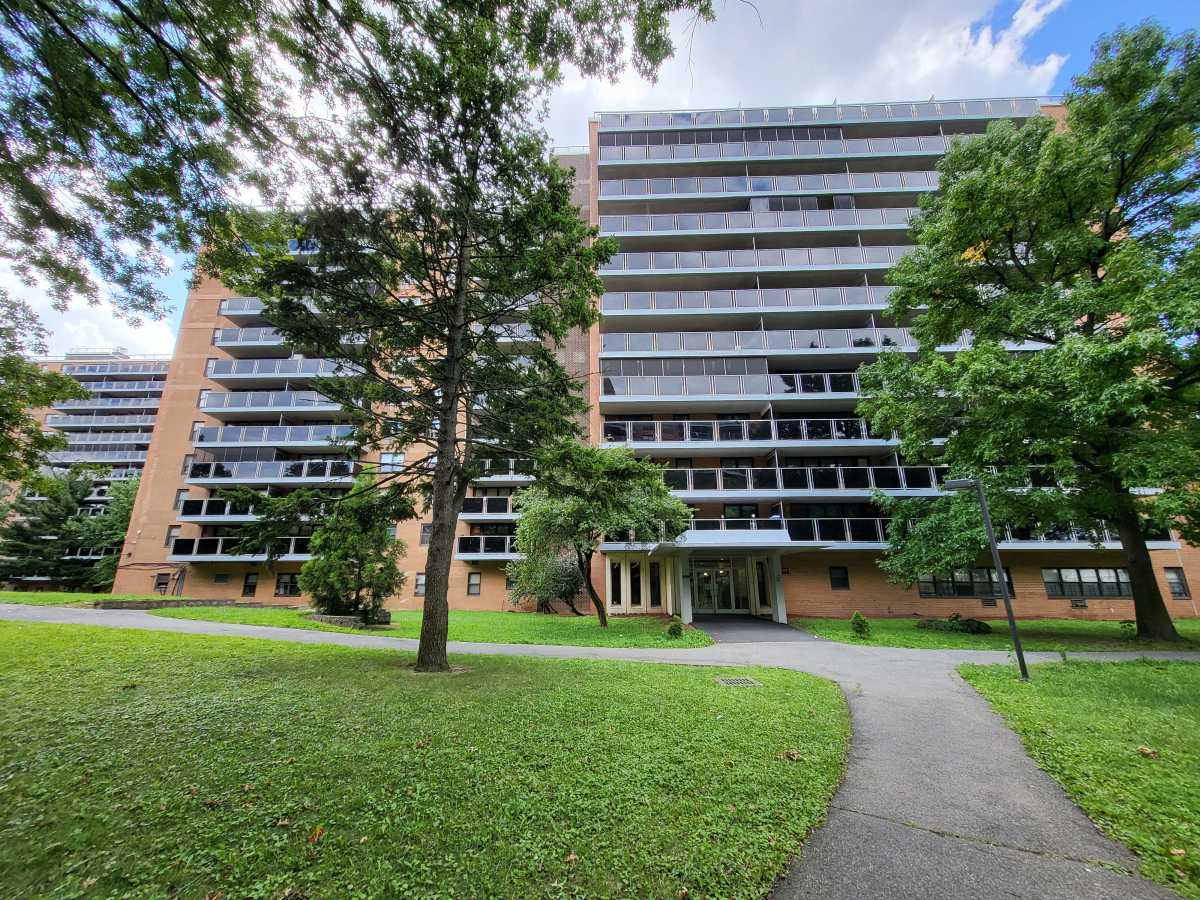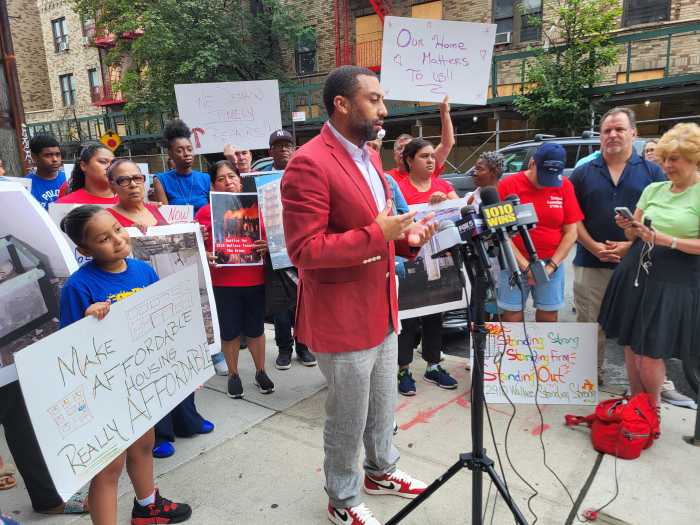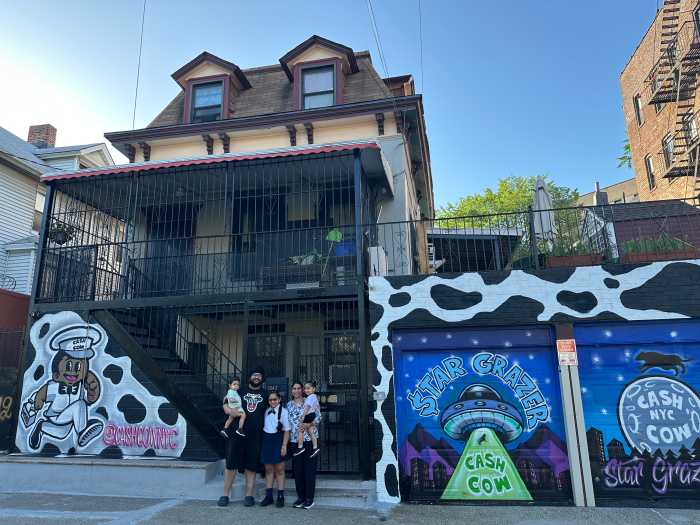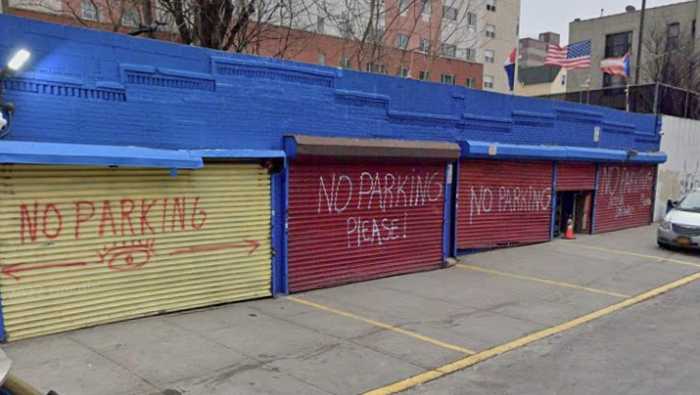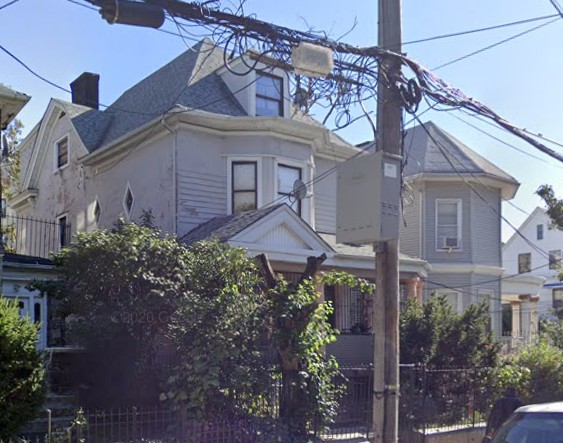Tensions are mounting at the Jamie Towers cooperative in the Castle Hill neighborhood, where shareholders have faced steep increases in their monthly maintenance charges while allegedly living amid hazardous conditions.
Starting May 1, residents at Jamie Towers were hit with a 40.4% per-room increase — on the heels of a 15.6% increase in 2023.
Jamie Towers, a Mitchell-Lama co-op with 620 units housing 60% senior citizens, is one of the state’s many struggling affordable housing developments — which State Comptroller Thomas DiNapoli said have suffered from a lack of government oversight.
A year prior to the May increase, the office of State Comptroller Thomas DiNapoli sounded the alarm about Jamie Towers. In an audit released June 2023, the office said it found evidence of financial mismanagement and unsafe physical conditions at the development — and claimed that the state monitoring agency, the Department of Housing and Community Renewal (DHCR), “does not adequately oversee” Jamie Towers and similar others throughout the city.
DiNapoli’s audit prompted alarm from local elected officials, who said their offices have been “inundated with complaints” from shareholders.
Borough President Vanessa Gibson, State Senator Nathalia Fernandez, Council Member Amanda Farías and Assembly Member Karines Reyes all signed on to an April 2024 letter to top state officials arguing against the proposed increase — 49% at the time but later reduced to 40.4% — and imploring the state to at least put it on hold.
In light of poor conditions cited in the audit, the officials said residents should not be expected to shoulder a steep increase in monthly charges.
“These findings [in the audit] are alarming and should serve as a wake-up call,” they said, calling the proposed increase “unequivocally unacceptable.”
The letter requested Attorney General Letitia James to further investigate and even consider criminal charges against FirstService Residential, which served as manager during the audit period. Property owners and management companies are responsible for ensuring safe living conditions and maintaining the financial integrity of the development.
But despite officials’ objections, a televised April 22 resident protest and it being voted down by the co-op board, an increase of 40.4% was enacted by DHCR to take effect May 1.
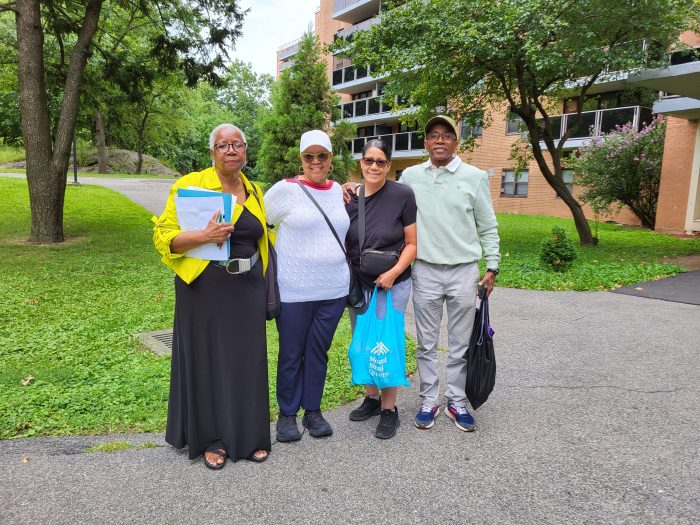
Months later, some residents say they cannot afford the increased amount and are only paying their previous charges — at the risk of being taken to court.
Mary Gonzalez, who has lived in Building 1 for 22 years, said she is among those not yet paying the increase. Her apartment maintenance costs jumped from $1,539 to $2,114 per month, she told the Bronx Times.
Gonzalez said she has always paid her debts on time without any assistance, even throughout the pandemic. “I’m so upset,” she said. “It’s so unfair.”
Another resident who said she cannot pay the increase is Sarah Thompson, who has lived in Building 4 since 1975. She is retired and has type 2 diabetes, high blood pressure and vertigo. Her husband is a retired police officer who is on oxygen 24 hours per day and has a part-time home health attendant. Charges for their three-bedroom apartment increased about $600 per month in May.
Thompson said she is not paying the higher amount yet but “next month we have to try to dig it up” — despite having few areas to cut back. She already goes to a weekly food pantry and drives her husband to and from medical appointments rather than paying for clinic-provided transportation.
When asked if she can afford to stay at Jamie Towers, “I don’t know,” Thompson said. “I have no other place to go.”
‘I can’t explain the feeling’
This story was reported via several phone calls and emails with Jamie Towers residents and an in-person visit to the complex on Aug. 22, 2024, where the Bronx Times toured the property and spoke with at least 10 longtime residents.
The four Jamie Towers buildings are located at 2050 Seward Avenue, 2070 Seward Avenue, 633 Olmstead Avenue and 630 Pugsley Avenue. It is a Naturally-Occurring Retirement Community (NORC) with 60% seniors.
The exterior of the property is large and quiet, lined with trees and large natural rock formations. But what serves as a nice, shaded area during the day becomes a poorly-lit safety concern at night, residents said. And the cracked, uneven walkways are only a slight hazard for someone of full mobility but pose a danger for the elderly.
Near one building, a large puddle seeped from the wall and pooled on the sidewalk, even though it had not rained for days. The fenced-off swimming pool — once a big attraction for the property — sat dry, having closed three years ago.
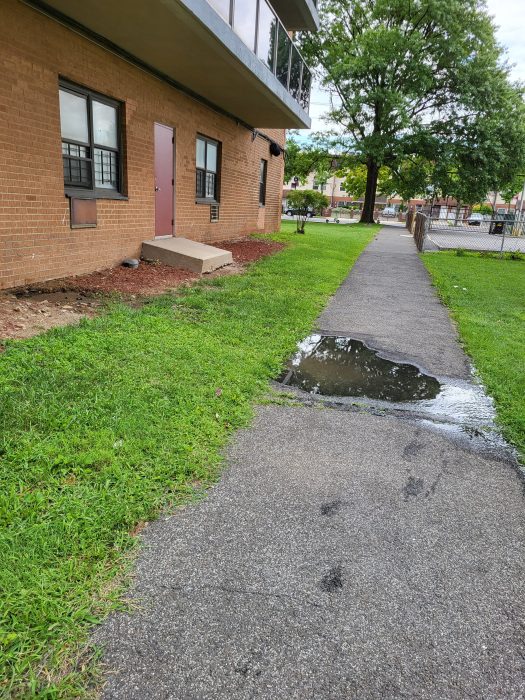
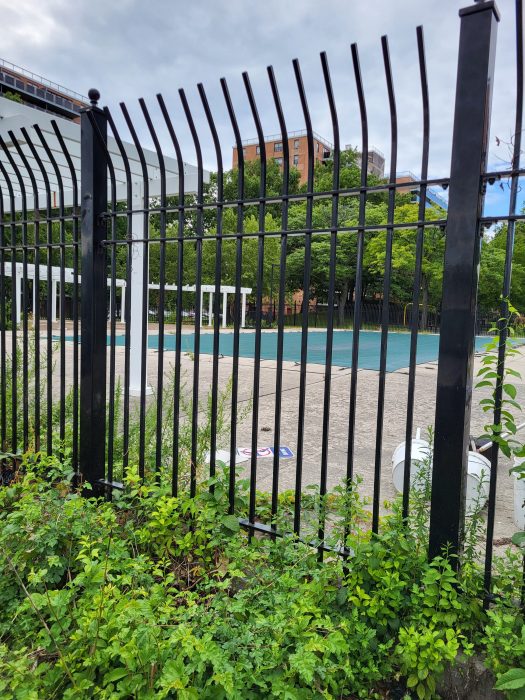
Jamie Towers is not the only struggling Mitchell-Lama co-op in the Bronx, the city or the state. And some shareholders are at least trying to take action against steep monthly increases amid worsening conditions.
In July, the Bronx Times reported on similar tensions at Park Reservoir in the Van Cortlandt neighborhood, where frustrated shareholders have also faced maintenance hikes (though less than at Jamie Towers) in return for decreased services, they said.
At Park Reservoir, a group of shareholders registered as a nonprofit and have been organizing for years. But little such effort is underway at Jamie Towers, where a kind of “malaise” has set in, according to Phyllis Gray, who has lived at the complex for 35 years and served on the board of directors from 2019 to 2021.
She said the dramatic hike in charges — plus recent vehicle break-ins, laundry rooms that flood when it rains, out-of-service elevators, unpainted hallways, poor water quality, cracked sidewalks and more — have residents feeling powerless.
“I can’t explain the feeling. You think you’re set for life,” she said.
And the worst sign, according to Gray? In a building with several hundred neighbors, “I don’t hear music, and I don’t smell food.”
‘Weak oversight’
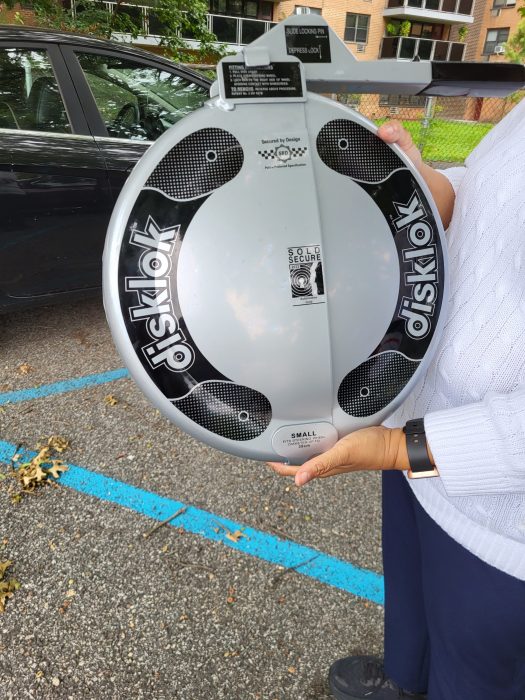
Jamie Towers is a privately-owned Mitchell-Lama development, constructed in the 1950s to provide stable part-ownership housing for low- and middle-income New Yorkers.
But the Mitchell-Lamas program has not adapted well to today’s times, said Assembly Member Reyes in an interview with the Bronx Times.
As the cost of maintaining these aging properties has skyrocketed, managers across the state struggle to maintain safe and healthy conditions while keeping costs low. Some Mitchell-Lamas have left the program and now charge market rates.
But improvements to existing housing must be a priority, Reyes said. “We really want to make sure people aren’t displaced.”
Stories from Park Reservoir, Jamie Towers and others in the comptroller audit point to deep problems with the state’s historic affordable housing — for which the comptroller said DHCR is not providing adequate oversight.
As previously reported by the Bronx Times, DiNapoli’s June 2023 audit of Jamie Towers and three other Mitchell-Lama co-ops found safety hazards — and questionable spending — at all of them.
And although the private owners and managers are responsible for ensuring the safety and fiscal integrity of the properties, the audit said DCHR was “falling short” of its monitoring and enforcement role.
“Homes and Community Renewal is aware of the poor conditions at Jamie Towers and other Mitchell-Lama developments because of our audits,” said DiNapoli in a statement to the Bronx Times for this story. “Homes and Community Renewal must improve its oversight to ensure funding for these buildings goes to needed maintenance and repairs.”
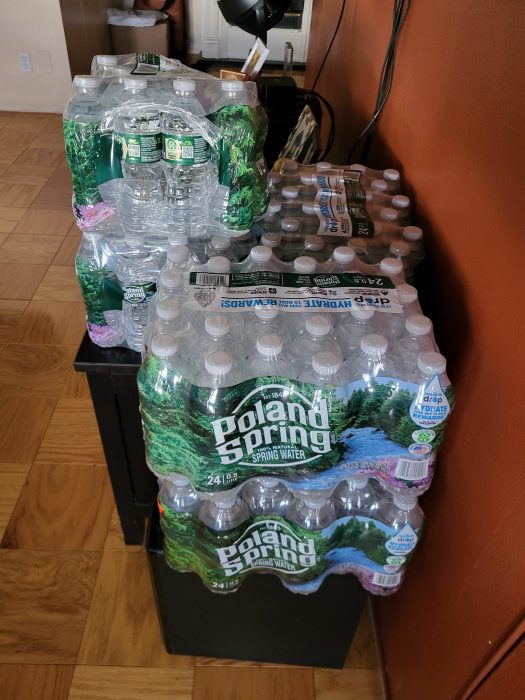
The audit covered January 2019 through January 2023 and assessed Findlay House and Jamie Towers in the Bronx, as well as Cathedral Parkway Towers (Manhattan) and Classen Avenue Housing Company (Brooklyn).
The comptroller’s office visited Jamie Towers on May 3 and June 24, 2022, and found major problems identified in 2019 that were still uncorrected. Of greatest concern were defective self-closing doors, a serious hazard that contributed to the deaths of 17 Bronxites in the 2022 Twin Parks fire. In that incident, some doors did not automatically close, turning the building into a smoke-filled chimney.
The audit also cited misspent funds, including over $20,000 in expenses “unrelated to operations” at Jamie Towers. The company was also deeply in debt: the audit said FirstService Residential, which managed the property during the audit period, owed $690,000 to 23 different vendors as of October 2021.
And yet, residents of the troubled co-ops were being asked to pay more each month.
“Despite the negative financial findings, management at all four developments [covered in the audit] have recently applied for a maintenance or rent increase,” said DiNapoli’s office in a June 2023 press release for the report.
At Jamie Towers, residents did not have increases between 2018 and 2023. But Reyes said that DCHR — which she called “very hands-off” — should have made a greater effort to help past board members understand that rejecting those increases would eventually catch up with them. But Gray said not every cycle required an increase — and questions whether past grants and loans to the company were misspent under the previous manager.
Even if raising rates is painful, “The increases are necessary, because ultimately, they own,” said Reyes.
The skyrocketing cost of housing
In the official response to the audit, DHCR said it “takes issue” with several findings and that the four developments are “exceptionally challenging” and “not representative of the Mitchell-Lama portfolio as a whole.”
Overall, DCHR claimed it is not responsible for day-to-day operations at Mitchell-Lama properties. But a December 2023 DHCR field report from a Sept. 21, 2023, visit to Jamie Towers showed that the agency is aware of grim conditions there.
For one, it said accounting for the corporation was difficult to verify because the previous manager left some deceased residents on the rent/maintenance rolls. Current management was still working to “clean up” accounts, it said — and current residents say they have not received annual financial documents from the corporation in two years.
At the time of the field report, 43 apartments had sat vacant for over two months — and two vendors had issued liens for overdue payments totaling over $100,000. DHCR also said residents expressed “anger and frustration” over the carrying charge increases in light of problems on the property.
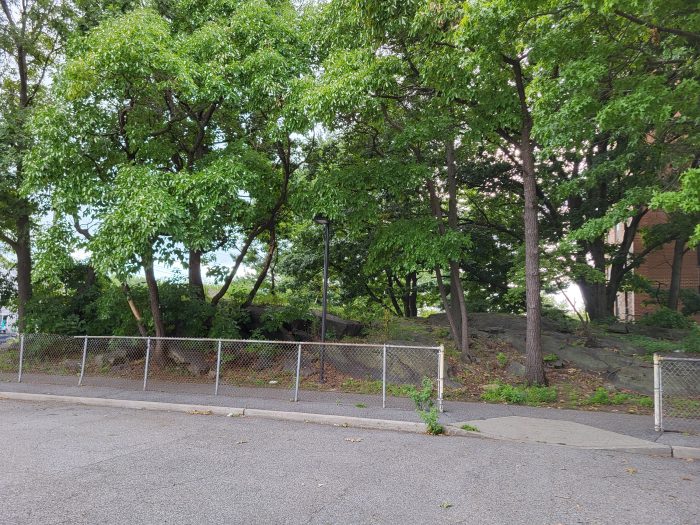
The Bronx Times emailed multiple times and spoke twice with DHCR, which said that “non-controllable” factors, such as rising costs of insurance and utilities — and inadequate cash on hand to meet mortgage expenses — were the main reasons behind recent increases at Jamie Towers.
Those expenses legally need to be covered. But after May 1, when charges at Jamie Towers jumped over 40%, residents were left struggling to come up with hundreds more dollars each month — and wondering why the corporation’s finances have deteriorated to this point.
Board President Maxine Breeden said the company is in dire straits despite a consistent auditor and state oversight. Her apartment went up close to $700, she said.
“Didn’t you see we were in trouble?” said Breeden.
The Bronx Times did not receive a response from current manager Maxwell-Kates or previous manager FirstService Residential but spoke with accounting agency Bloom and Streit, which has audited Jamie Towers for close to 20 years.
An auditor who requested not to be named told the Bronx Times that costs for utilities and insurance have doubled and even tripled in the post-pandemic era — leaving housing corporations no choice but to pass the burden onto shareholders.
“If the budget so requires, the board must vote to increase the carrying charges of the housing company to a level high enough to sustain the financial needs of the housing company,” according to a DHCR training webinar for Mitchell-Lama co-op board members
This points to a pattern among Mitchell-Lamas, as managers for Park Reservoir and Amalgamated Housing cited similar cost increases. Manager Andrew Kimerling said there was “not one area” of housing operations that has not seen a massive increase in recent years.
“The Mitchell-Lama program is struggling right now,” the Bloom and Streit auditor told the Bronx Times. The 1950s-era program “has not found an answer” to keeping charges low amid utility and labor increases and the need for major repairs such as plumbing and brickwork, he said.
The auditor acknowledged that residents are upset — but not paying only worsens the corporation’s financial state, he said. “What is the cooperative supposed to do?”
Inherited troubles
While problems at Jamie Towers did not spring up overnight, many worsened under the previous manager from 2010 to 2023, FirstService Residential, who oversaw the mismanagement cited by the audit. The company did not respond to multiple emails from the Bronx Times.
Despite the problems identified in the audit — plus two lawsuits ongoing lawsuits brought by residents against FirstService Residential alleging they were injured on the property due to management neglect — FirstService continues to manage over 90,000 residential units in the New York region and is listed as an “expert” Qualified Mitchell-Lama Property Manager on the city’s Housing Preservation and Development (HPD) website.
FirstService currently manages seven Mitchell-Lama co-ops in Manhattan and two in Brooklyn, according to a July 2024 program list. In 2022 and 2023, it was named the number one property management firm in New York City by real estate site The Real Deal, based on the large number of units in its portfolio.
The current manager at Jamie Towers, Maxwell-Kates, took over in April 2023. Residents told the Bronx Times the company is working hard on improvements — but more help is urgently needed.
Phyllis Gray said the scale of the problems calls for “creative solutions.” But no one has a pro bono lawyer, housing advocate or accountant friend to call, and many are at a loss for how to proceed, she said. Such overwhelm is taking its toll.
Samuel Gray, Phyllis’ brother and resident of Building 3 for the past 12 years, said he is “slightly saddened” that more residents are not involved in advocating for their needs.
“We gotta fight,” said Gray, as he showed the Bronx Times the hallways on floors 3 through 6 of his building, which are primed but not painted, leaving a drab beige with paint splotched around the edges.
Gray said because Jamie Towers is mostly home to elderly people of color, they feel they have less power and resources. Even attending evening meetings is one obstacle for some — and with no online streaming option, many voices are going unheard.
What residents do have is a suggestion box in the lobby with a note that reads, “Be heard! Your voice really does matter.”
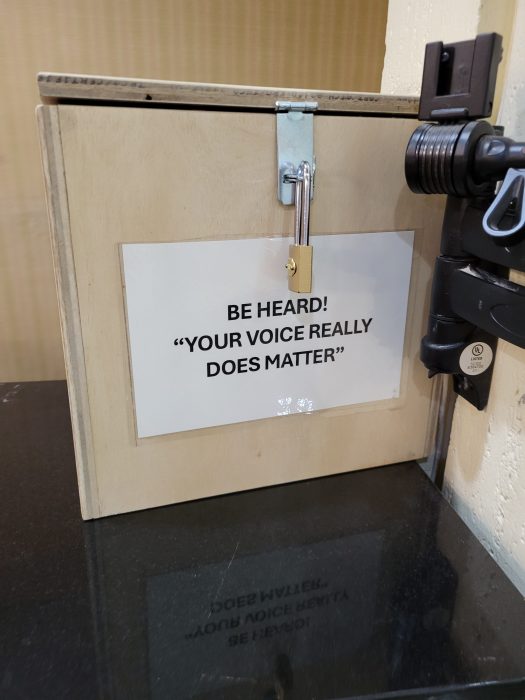
Help is on the way?
Local elected officials have secured money to help turn things around at Jamie Towers, but there’s a catch: some funds may not be accessible until serious violations at the property are resolved.
A search of HPD records on Sept. 4 found 239 open violations among the four buildings — 50 of which are Class C or “immediately hazardous,” requiring a fix within 24 hours. Those violations include defective self-closing doors, mice and roach infestations, ceiling mold and broken door locks.
In a July 3 letter, Assembly Member Karines Reyes told Breeden, the board president, that she secured an operating allocation of $182,000 for Jamie Towers and secured commitments from colleagues to provide capital dollars.
But Reyes said funds, especially from city government, may be held up for multiple reasons. For instance, Council Member Farías awarded $2 million for elevator repairs in 2022 — but the funds “may not have been released due to Class C violations on the property,” said Reyes.
In a statement to the Bronx Times, Farías said that understaffing at HPD caused major delays in accessing the funding.
“It has been two years of relentless advocacy from myself to the agency, and Jaime Towers has yet to be designated a project manager for the project,” she said.
If any state or city funds are conditional on resolving violations, securing them will be a major undertaking — because more funding is needed to fix them. And Reyes said most government funding goes towards capital improvements, not to corporations to pay current obligations.
“Where does that leave us? It’s a Catch-22,” said Phyllis Gray.
‘I had enough’
Several Jamie Towers residents who spoke to the Bronx Times said they may need to move if monthly charges keep going up. And many have already left.
Among them was Regina Jones, who works as an analyst for a utility company. When Jones moved into Jamie Towers in July 2021 — after five years on the waitlist — she thought she had found her final place to live in New York.
Jones, a lifelong Bronxite, bought into the co-op with plans to stay for six to eight years, then retire and move out of state. But she moved out three years to the day after she arrived, fearing more increases down the line, she told the Bronx Times.
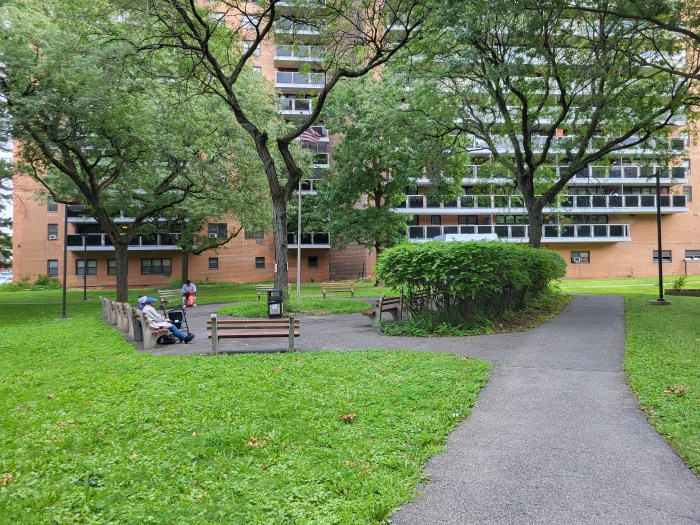
Jones said when she toured the property, she didn’t see any obvious problems and did not have major issues in her own apartment. But she said she was promised improvements “coming soon” that never came, including reopening the pool, repairing fences along the parking lots, replacing terrace doors and pigeon control to prevent the birds from continually pooping on the terraces.
Jones also heard residents complain about mice, rats and car break-ins. In the parking lot during the Bronx Times visit, Joe Roman, a resident of Building 4 for 19 years, said his car airbag has been stolen twice in the past two years. He didn’t even get it repaired after the second time.
Roman blamed a lack of security for the parking lots, which are just off the street with no gates or locks.
Jones said she also noticed tripping hazards and the lack of security guard presence. Each of the four buildings used to have a 24/7 guard, but beginning in 2017, just one guard was assigned to patrol all the buildings and three parking lots.
And the former security company, Prime Protective Bureau, recently sued the housing corporation in Dutchess County Supreme Court, alleging it is owed over $767,000 in unpaid invoices.
The worst issue for Jones was that her monthly charges started at $926 — and went up to $1,700 over three years. When she saw the most recent increase of 40.4%, “At first I thought this has to be an error,” she said.
As for the lack of improvements to the property, “I saw a lot of talk happening, but I don’t see any action,” said Jones. After three years, “I had enough.”
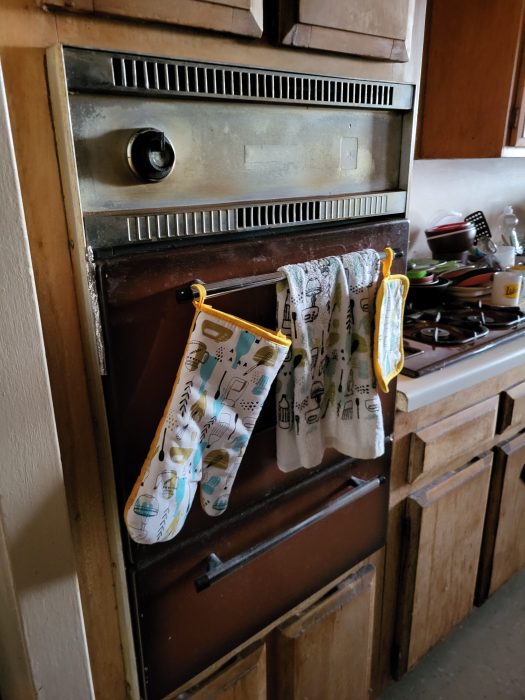
Jones now lives in a rental apartment in Soundview where “at least there’s some sense of boundary” to rent increases, she said.
But the mentality of renters versus shareholders is part of the problem, said the auditor from Bloom and Streit. He emphasized that shareholders, unlike renters, are part-owners of the property — which carries a higher level of responsibility when costs rise.
But Jones said she would have preferred to remain a shareholder at Jamie Towers. She enjoyed living among seniors and thought a co-op would be a more stable, beneficial arrangement than renting.
But in order for her to have stayed, “There has to be a limit with DHCR” when it comes to increases in charges, Jones said. “Everyone is being chased out of their homes.”
One possible solution being explored is to expand current rent-freeze programs — the Senior Citizen Rent Increase Exemption and Disability Rent Increase Exemption, commonly know as SCRIE and DRIE — to allow more people to qualify, Reyes said. The income limit for these programs has not changed in ten years, she said.
But with many residents feeling hopeless now, Gray said she has seen more and more neighbors move out — even a few who packed up and left in the middle of the night.
“There’s no stability,” said Gray. “When there’s no stability, there’s no community.”
Reach Emily Swanson at eswanson@schnepsmedia.com or (646) 717-0015. For more coverage, follow us on Twitter, Facebook and Instagram @bronxtimes

